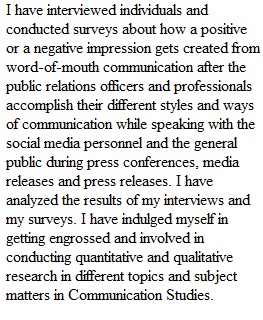


Q Topic 4: The Portfolio Assignment Instructions for your Academic Portfolio and its accompanying Reflection Essay can be found in the Syllabus. The format for the portfolio itself is detailed in the Academic Portfolio Toolkit under Content > Course Resources in this classroom. (Some of you may have to complete the Alternate Analytical Essay assignment if you do not have the sample coursework to create the portfolio. Those instructions also are in the Syllabus.) This assignment is designed to help you create a coherent view of your studies, particularly in terms of the aspects of your work that are especially valuable to you, both personally and professionally. You might create a coursework portfolio that is oriented toward your personal development, or you might prefer to create a portfolio that is more directed toward your professional development. Use this discussion to help you plan your portfolio essay assignment by answering the following: • Brainstorm a list of some of your valuable coursework (not courses but work you did in your Communication Studies courses) • Describe how and why these courses and the Communication Studies degree generally were a good major for you • How are you different now with respect to your understanding of communication than you were when you began your studies? When you are analyzing your coursework selections, consider establishing a framework for your portfolio that not only reflects how you have grown as a person but also how you have been changed by what you have learned about the communication discipline. You will need to turn your brainstorming into a meaningful thesis (**not** that you learned a lot or that communication skills are important; those thoughts are general truths but not meaningful theses). Does a model of communication, ethical issue, communication tradition, context, or communication theory stand out in your samples? Perhaps it can be the lens through which you reflect on your experiences in the Communication Studies program? For example, if you found yourself drawn to gender studies or analyzing political blogs, perhaps your essay can center around that interest and how it has affected you or where that interest may be taking you? Some students have found these questions helpful to discovering a significant insight on what you have gained by being a Communications Study major: 1. What communication theory that you have learned in Communication Studies helped you to better understand your work environment, your family environment, society in general, or world events? 2. How do your works reflect your insights about communication, both personally and professionally, or how did your works help you understand and apply the communication theory? 3. To which model of communication do you subscribe, for example, the interactional model the linear model, or the transactional model and how is that choice reflected in your portfolio selections? 4. Which ethical issue most challenges or interests you: business & industry issues, religion, entertainment, higher education, medicine, politics, or technology? 5. Which communication tradition do you follow, for example, the rhetorical tradition, the semiotic tradition, the phenomenological tradition, the cybernetic tradition, the socio-psychological tradition, the socio-cultural tradition, or the critical tradition? 6. In which context do you focus as a research interest, for example, the intrapersonal context, the interpersonal context, the small group context, the organizational context, the public and rhetorical context, the mass media context, or the cultural context? 7. Which communication theory suits your workplace or research interests; for example, symbolic interaction theory, coordinated management of meaning, cognitive dissonance theory, expectancy violations theory, uncertainty reduction theory, social penetration theory, social exchange theory, relational dialectics theory, communication privacy management theory, groupthink, structuration theory, organizational culture theory, organizational information theory, rhetoric, dramatism, the narrative paradigm, cultural studies, cultivation analysis, uses and gratifications theory, spiral of silence theory, media ecology theory, face-negotiation theory, communication accommodation theory, muted group theory, or standpoint theory? [These questions are not an outline for your essay. They are provided to help you brainstorm your reflection.] Your Academic Portfolio is intended to be constructed for a prospective employer as a basis for hiring you. The insights you note as you introduce each of your coursework samples are to be directed to that reader; your Reflective Essay should explain how the degree program has changed and strengthened you (complete with a References page to support the citations that you use in this part of the portfolio); your Résumé should be crafted for an employer in your intended career field. Your Academic Portfolio, Reflection Essay, and Résumé, or your stand-alone Alternate Analytical Essay and Résumé if that is the package you must develop, are due at the end of Week 2. What you end up writing in your reflective or analytical essays will be assessed for clarity and depth, so make the most of this opportunity to share ideas on what you might say in it with your classmates. Please post your initial response to this discussion prompt by 11:59 p.m. Eastern Time on Wednesday. Then, respond to the initial posts of at least two other students by 11:59 p.m. Eastern Time on Saturday. Continue your conversations through the end of the course week.
View Related Questions